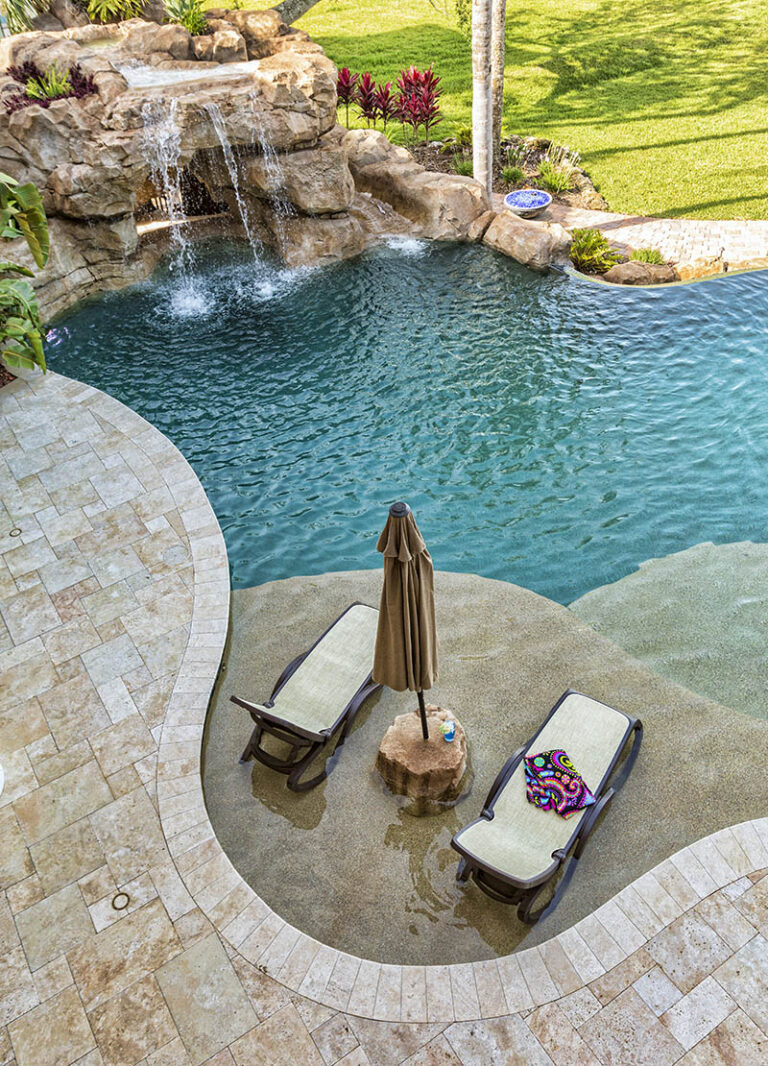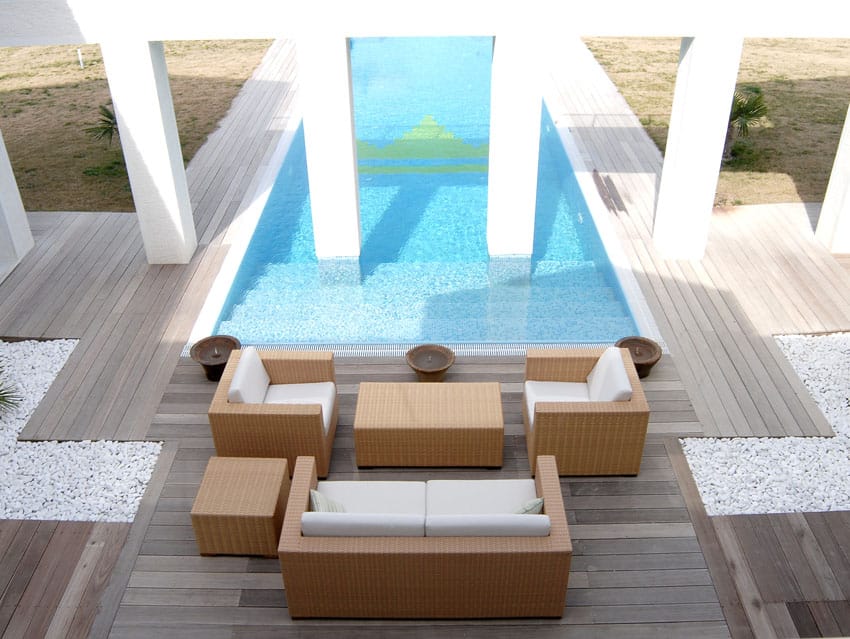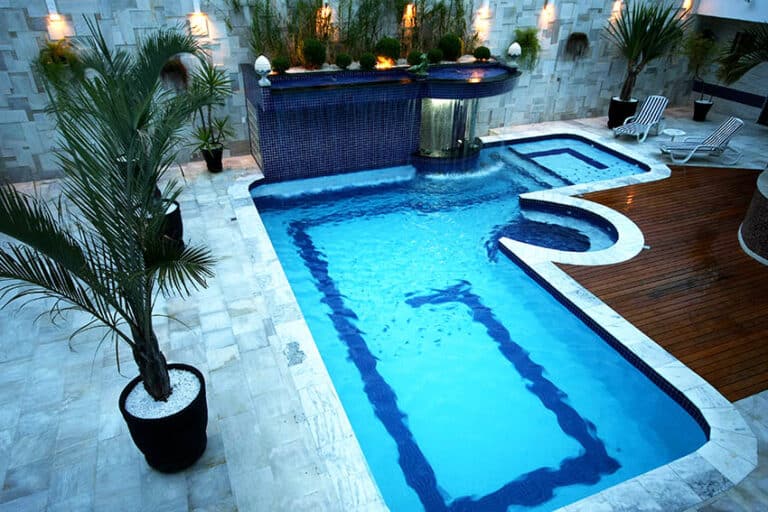Salt Finish Concrete Pool Deck (Design Guide)
Homeowners with backyard swimming pools know very well how slippery an ordinary pool deck can be. While adults can watch their steps to prevent falls, children are often not so lucky. That is why many swimming pool owners love to have a salt–finish patio.
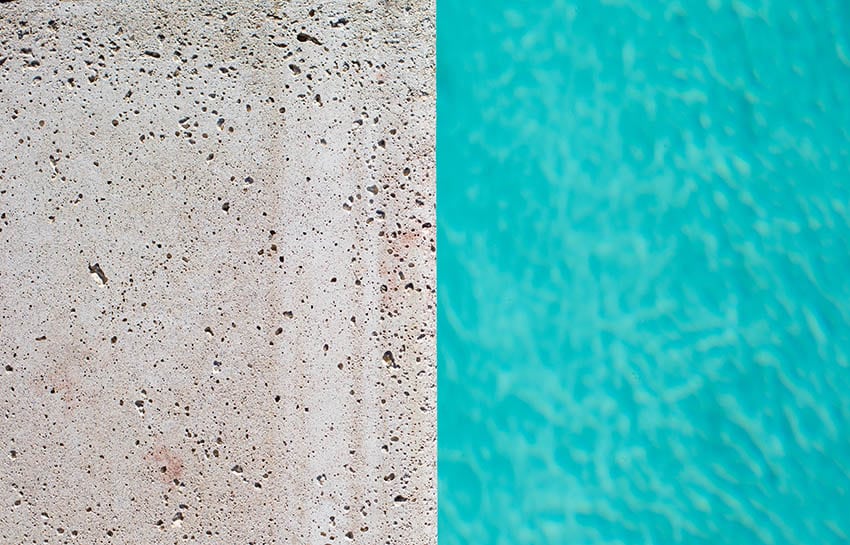
This type of swimming pool deck is not only safer for everyone who uses the pool. It also gives the water feature a more natural look and feel, almost like walking on the beach. If you want to learn more about what a salt–finish concrete pool deck is, this article is for you.

Upload a photo and get instant before-and-after room designs.
No design experience needed — join 2.39 million+ happy users.
👉 Try the AI design tool now
What is a Salt Rock Finish Pool Patio?
Conventional swimming pool decks feature a broom or brushed finish to make the concrete surface textured. Before the cement hardens, technicians brush the surface with a broom or a similar tool to create shallow indentations.
The tiny grooves created by the broom or brush strokes create a rough surface, allowing people and objects to maintain traction as they move on the patio.
A salt–finish pool deck is almost like a smooth-finished or brush-finished platform. The only difference is the addition of rock salts onto the wet concrete mixture’s surface.
Swimming pool deck finishers often use coarse rock salt, as many households use for deicing or in their salt-based ion-exchange water softeners. While the deck’s concrete is still wet, finishers add a layer of coarse rock salt on the surface before pressing the grains with a roller or float.
Pressing the particles pushes them deep enough into the concrete to create indentations when removed. One must be cautious in pushing the particles. Too shallow, and the deck might not receive its much-needed slip resistance. If it is too deep, the material gets stuck in the surface.
Concrete finishers wait about 24 hours for the mixture to set before they rinse the surface with a power washer. This action removes any grains not embedded into the dry concrete. It also produces the characteristic speckled pattern as dislodged particles will leave small craters on the surface.
Salt concrete finishes are common in homes in the country’s southern and western regions, where the weather is generally warmer.
Subjecting a salt finish pool deck to freezing temperatures can cause spalling. Salt lowers water’s freezing temperature, forming ice faster than ordinary water. This characteristic allows the salt to freeze water and melt ice rapidly while building pressure in crevices. It can lead to cracks in the cement.
That is why many pool deck contractors do not recommend a salt finish for homes in cold climates. 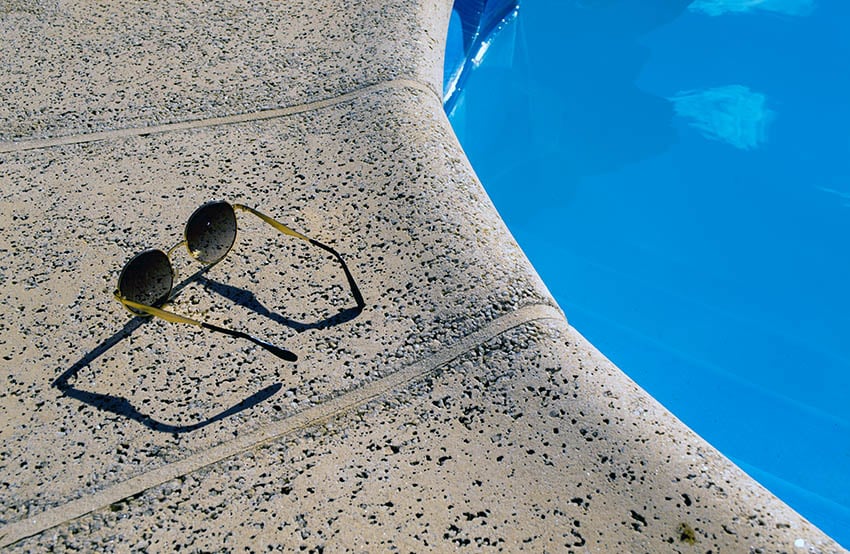
Cantilever pool deck with rock salt finish.
Pros and Cons of a Salt Finish Concrete Pool Deck
Pros:
- Exceptional slip resistance with the correct application
- Safer for people to move around swimming pools even with wet feet and surface
- Provides excellent traction for wheeled items, such as utility vehicles, food carts, and poolside trays
- Withstands chemicals, physical forces, and extreme heat
- Reflects heat better than tiles and dark-colored bricks, making it more comfortable for anyone to walk on the pool deck surface barefoot
- More affordable than other styles
- Provides a distinctive weathered pattern to the surface
- Allows for customization, especially when used with colored rock salt
- Easy to clean and maintain, allowing families to keep their pool’s integrity over time
- Works with other decorative patio, coping and swimming pool finishes
Cons:
- Not recommended for swimming pools in cold climates
- Requires professional installation, ensuring uniform distribution and proper compaction
Is Salt Finished Concrete Slippery?
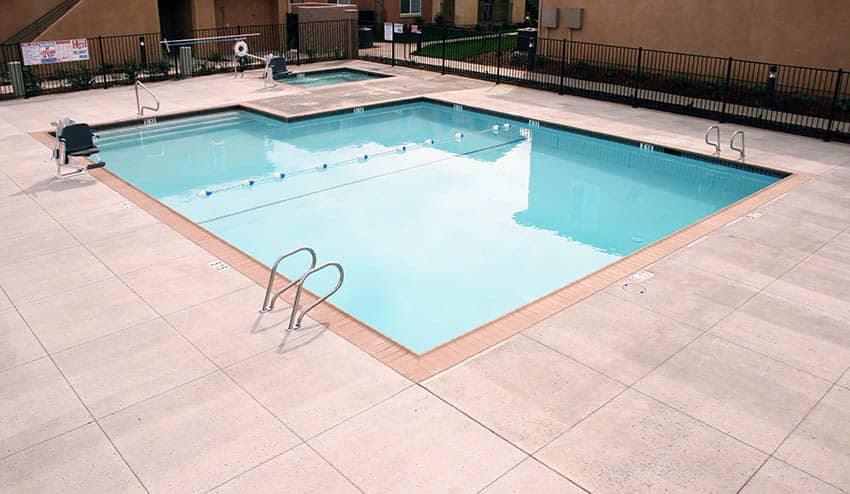
The speckled finish and tiny indentations created by the dislodged salt crystals give the finished concrete excellent skid and slip resistance.
People walking around are less likely to slip and fall because the textured surface provides excellent traction on the soles of the feet or footwear. For this reason, a concrete patio with a salt finish is often used for public pools.
The textured finish also makes it ideal for other objects, such as utility vehicles and food carts. The wheels have a firm grip on the surface, preventing unnecessary movements without hampering the device’s mobility.
Is Salt Finished Concrete More Expensive than Concrete?
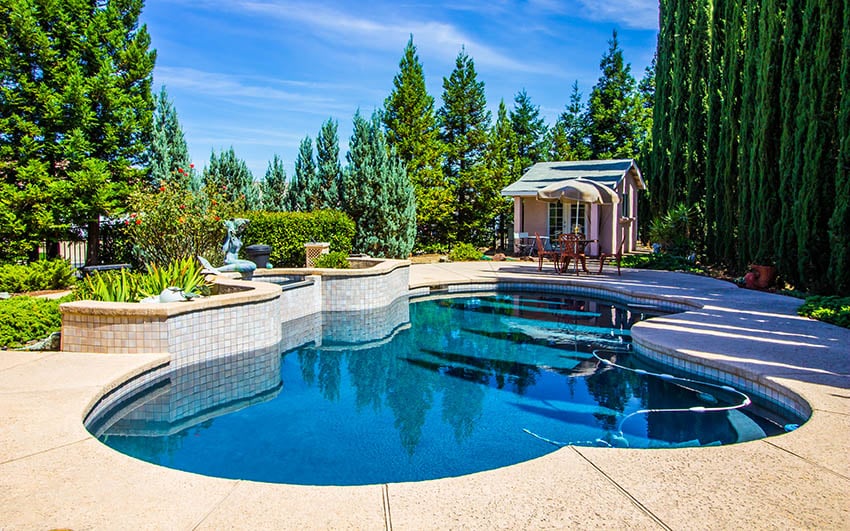
Salt finish concrete is more expensive than a traditional concrete pool deck because of the additional rock salts. However, the price difference is almost negligible, depending on the size of the swimming pool deck.
One must remember that ordinary concrete pool decks require only a broom or brush to create a slip-resistant surface. You can buy one of these tools for less than a dollar or two.
On the other hand, adding rock salts to the concrete can increase the construction cost by a few tens of dollars. For example, if one requires ten 50-pound bags of rock salt, the concrete pool deck’s construction cost will be higher by $60 to $70.
Using a hundred 50-pound bags will put an extra $600 to $700 on the construction cost, considering the average price of a 50-pound bag of rock salt is about $6 to $7.
On average, a basic finish will cost homeowners a dollar for every square foot of pool deck area. This price is on top of the usual cost of constructing a patio.
So, if one has 100 square feet of deck area, the additional cost will be $100 on top of the concrete pool deck construction cost. If the overall project costs $1,000, adding a basic salt finish will push the price to $1,100.
Contractors can also include a salt finish in their services, purchasing only a roller to press the crystals into the wet concrete. This inexpensive tool will last many years with proper care and maintenance.
Salt Finish Pool Deck Conclusion
A salt finish concrete pool deck is an inexpensive option for homeowners who want excellent slip resistance and a unique weathered look around their swimming pools.
With the correct knowledge and skill, ordinary homeowners can apply a basic finish themselves. Even if they contract with professionals, the cost will still be lower than having other decorative finish options.
The improved safety and raw beauty of salt finish are enough reasons for many homeowners to adopt this pool deck decorative option.
For more related content, another similar finish that is popular is an exposed aggregate pool deck.

